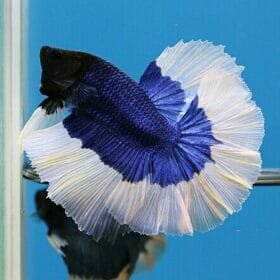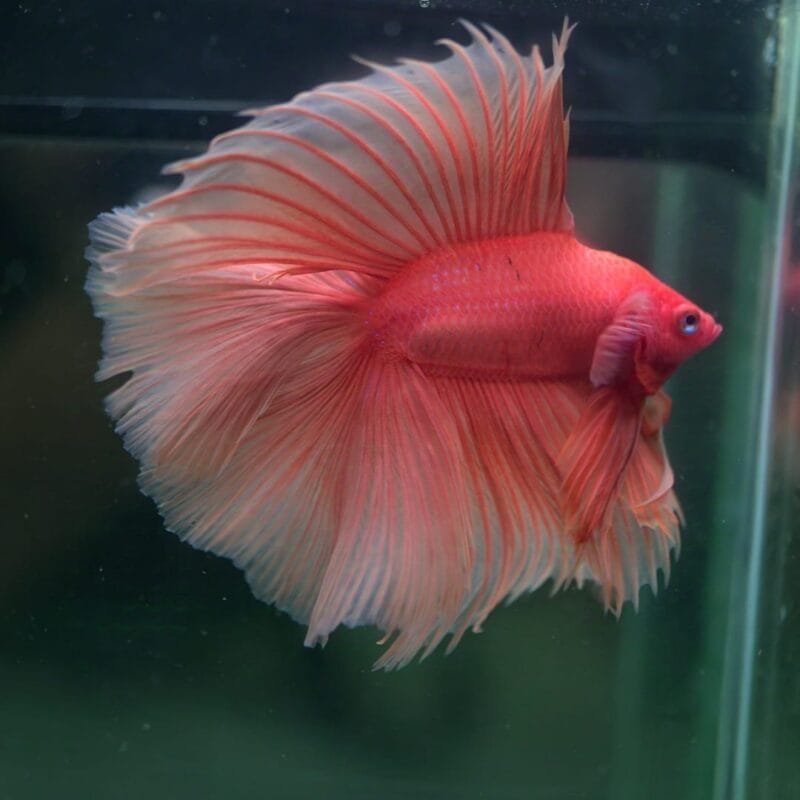Aquatic Life Care, MAA Blog
7 Expert Ways to Improve Your Pet Betta’s Lifespan
7 Expert Ways to Improve Betta Fish Lifespan
Betta fish are one of the most beloved and low-maintenance pets in the aquarium world. But how long does a betta fish live? While the average lifespan is around 3–4 years, proper care can significantly increase your betta’s chances of living up to 5 years or more. In this expert guide, you’ll discover how to improve your betta fish’s lifespan through environment management, diet, stress reduction, and more.
Understanding the Betta Fish Lifespan
A healthy betta fish, when provided with the right conditions, can live a vibrant and active life well beyond what many first-time owners expect. The lifespan of a betta is not fixed—it’s influenced by several crucial factors including genetics, living environment, water conditions, and nutrition.
While many bettas sold in pet stores are already about a year old (because they reach full coloration and size by that age), the clock doesn’t have to start ticking at one. With proper attention, your betta could live another 3–4 years from the time of purchase.

Key Factors That Impact Betta Longevity
Genetic Quality: Bettas bred in ethical, health-focused environments typically live longer.
Water Quality: Clean, stable water is essential for disease prevention.
Tank Size: A spacious tank provides exercise and reduces stress.
Dietary Variety: Nutrition directly affects their immune system and energy levels.
Stress Management: A calm environment free from visual and physical threats promotes longevity.
Creating the Ideal Habitat to Extend Betta Lifespan
Optimal Tank Size for Long-Term Health
While bettas are often seen in cups or small bowls, this is far from ideal. A minimum of 5 gallons is recommended, though 10 gallons provides even better conditions. Larger tanks allow for better filtration, more consistent temperatures, and reduced stress.
Water Temperature and Parameters
Bettas are tropical fish and need water temperatures between 78–80°F (25–27°C). Anything colder can slow their metabolism, weakening their immune system. Also, aim to maintain:
pH between 6.5–7.5
Ammonia: 0 ppm
Nitrite: 0 ppm
Nitrate: Below 20 ppm
Use a heater and thermometer to keep the temperature stable, and an aquarium test kit to monitor parameters regularly.
Decor and Filtration
Include silk or live plants for hiding spots and enrichment.
A sponge filter is ideal as it provides gentle flow—bettas dislike strong currents.
Smooth decorations prevent fin tears and injuries.
Nutrition: The Cornerstone of Betta Longevity
A healthy diet plays a central role in how long your betta lives. Betta fish are carnivorous, meaning they need high-protein food rather than plant-based flakes.
Best Foods to Feed Your Betta
High-quality betta pellets (staple diet)
Frozen or live foods such as:
- Tubifex worms
Bloodworms
Brine shrimp
Mosquito larvae
These provide essential amino acids and vitamins that enhance coloration, immunity, and energy.
Feeding Schedule & Tips
Feed small amounts twice a day
Avoid overfeeding; it leads to bloating and ammonia spikes
Remove uneaten food after 5 minutes
A fast day once a week helps prevent digestive issues.
How to Minimize Stress and Increase Betta Lifespan
Stress is a silent killer for bettas. Whether it comes from poor water quality, tank mates, or environment changes, prolonged stress weakens their immune system and shortens their life.
Tank Placement Tips
Keep the tank in a quiet, stable area away from loud noise or heavy foot traffic.
Avoid placing tanks near windows—direct sunlight can cause rapid temperature shifts and algae blooms.
Tank Mate Caution
Male bettas should never be housed together.
Even sight of another male can lead to chronic stress.
Choose peaceful, non-nipping species if you want community tankmates (like small snails or ghost shrimp).
Monitoring Health and Preventing Disease
Catch problems early, and you may extend your betta’s life by months or even years.
Signs of Illness
Faded colors
Lethargy or floating at the surface
Loss of appetite
Clamped fins
White spots or fuzzy growths
Prevention Tips
Quarantine new tank items or tank mates
Regular partial water changes (25–50% weekly)
Maintain a consistent routine to avoid sudden changes
Extra Expert Tips for Betta Fish Longevity
Use a timer for lights: 8–10 hours of light daily prevents stress and algae overgrowth.
Don’t use sharp gravel or décor—betta fins are delicate.
Treat water with a dechlorinator before every change.
Keep a water test log to spot trends or issues early.
FAQs
How long do betta fish live on average?
Most betta fish live between 3 to 4 years, but with optimal care, some can live up to 5 years or more.
Can bettas live in bowls or small containers?
While they can survive in small spaces, bowls limit movement and lead to poor water quality, drastically reducing their lifespan.
Do betta fish get lonely?
Bettas are solitary and do not require tank mates. Some even get stressed if others are present.
Why does my betta flare at its reflection?
It sees its reflection as a rival. Frequent flaring can cause unnecessary stress—try reducing light or adjusting background colors.
How do I know if my betta is happy?
Active swimming, building bubble nests, and bright coloration are all signs of a happy, healthy betta.
Should I change all the water at once?
No. Doing full water changes can shock your betta. Stick to 25–50% weekly water changes using treated water.
Conclusion
The secret to a long, healthy betta fish lifespan lies in consistency and care. From selecting the right tank size and maintaining water quality to feeding a diverse diet and minimizing stressors, each detail plays a vital role in your fish’s well-being. A little effort every day leads to a betta that lives not just longer, but happier and more vibrant. Commit to these practices, and your betta will reward you with years of beauty and companionship.

